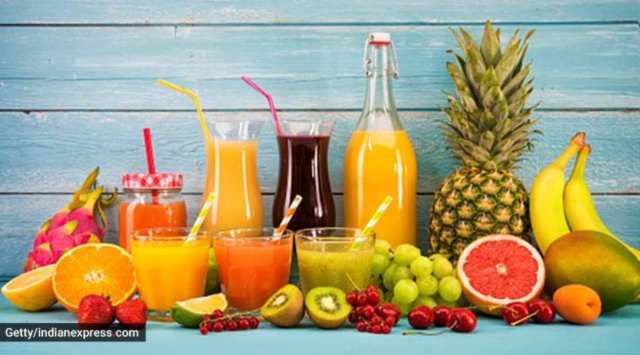- India
- International
Can fruits and vegetables boost brain health?
The higher the intake of flavonoids, the researchers found, the fewer “yes” answers to the questions. Compared with the one-fifth of those with the lowest intake of flavonoids, the one-fifth with the highest were 19 per cent less likely to report forgetfulness or confusion.
 The study was observational so cannot prove cause and effect, although its large size and long duration add to growing evidence that what we eat can impact brain health.
The study was observational so cannot prove cause and effect, although its large size and long duration add to growing evidence that what we eat can impact brain health.Written by Nicholas Bakalar
Eating colourful fruits and vegetables may be good for your brain.
A new study, one of the largest such analyses to date, has found that flavonoids, the chemicals that give plant foods their bright colours, may help curb the frustrating forgetfulness and mild confusion that older people often complain about with advancing age and that sometimes can precede a diagnosis of dementia. The study was observational so cannot prove cause and effect, although its large size and long duration add to growing evidence that what we eat can impact brain health.
The scientists used data from two large continuing health studies that began in the late 1970s and early 1980s, in which participants periodically completed diet and health questionnaires over more than 20 years. The analysis included 49,693 women whose average age was 76 and 51,529 men whose average age was 73.
The scientists calculated their intake of about two dozen commonly consumed kinds of flavonoids — which include beta carotene in carrots, flavone in strawberries, anthocyanin in apples, and other types in many other fruits and vegetables. The study appears in the journal Neurology.

The degree of subjective cognitive decline was scored using “yes” or “no” answers to seven questions: Do you have trouble remembering recent events, remembering things from one second to the next, remembering a short list of items, following spoken instructions, following a group conversation, or finding your way around familiar streets, and have you noticed a recent change in your ability to remember things?
The higher the intake of flavonoids, the researchers found, the fewer “yes” answers to the questions. Compared with the one-fifth of those with the lowest intake of flavonoids, the one-fifth with the highest were 19 per cent less likely to report forgetfulness or confusion.
According to the senior author, Dr. Deborah Blacker, a professor of epidemiology at the Harvard TH Chan School of Public Health, these long-term findings suggest that starting early in life with a flavonoid-rich diet may be important for brain health.
For young people and those in midlife, she said, “the message is that these things are good for you in general, and not just for cognition. Finding ways that you enjoy incorporating these things into your life is important. Think about: How do I find fresh produce and cook it in a way that’s appetising? That’s part of the message here.”
This article originally appeared in The New York Times.
Apr 29: Latest News
- 01
- 02
- 03
- 04
- 05




































